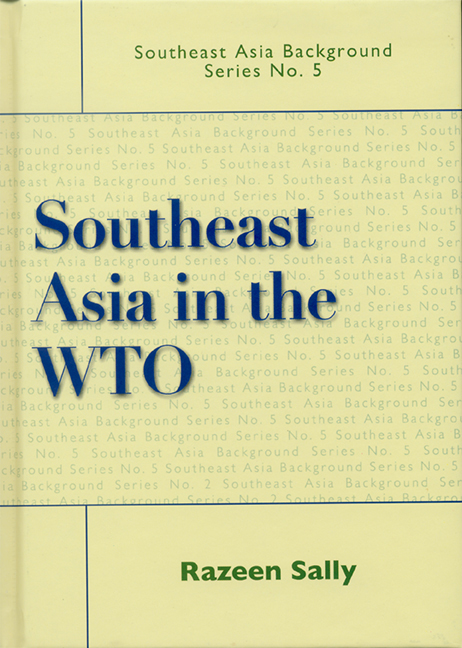3 - Malaysia and WTO
Published online by Cambridge University Press: 21 October 2015
Summary
TRADE POLICY FRAMEWORK
Malaysia has long had relatively liberal trade policies by developing country standards, indeed more markedly so since further trade and investment liberalization from the mid-1980s. It is one of the twenty most globalized economies in the world: trade accounts for 223 per cent of GDP; FDI accounts for between a quarter and a third of overall private investment; and the accumulated stock of FDI is close to a half of GDP.
The average tariff is 9.2 per cent (Table I), but once weighted by the volume of imports the average rate of duty comes down to 1.3 per cent. This is due to often duty-free concessions on imports related to domestic investment, production and export incentives, much of it aimed at multinational enterprises (MNEs). However, the tariff structure is distorted by high tariffs and tariff escalation on sensitive items (for example, cars, car parts, motorcycles, textiles and clothing, alcohol, and some food products). Non-tariff barriers include opaque, discretionary, and administratively burdensome import licensing procedures, a government monopoly on rice imports and production subsidies to agriculture. Non-tariff protection has come down since the late 1980s, but it may have picked up again after the Asian crisis. Malaysia is a sparse user of anti-dumping duties and has not resorted to other trade remedies.
Malaysia has been open to FDI in manufacturing, but on a selective and discriminatory basis. Foreign ownership was limited to 30 per cent of equity, but this was often honoured in the breach, with 100 per cent ownership allowed in the electronics sector, for instance. In mid-2003 the Malaysian Government announced the full liberalization of equity holdings in manufacturing projects, in response to a sharp drop in recent inward investment and the switch of investor attention to China.
Protection in services sectors is much higher, with closer adherence to the 30 per cent foreign ownership limit combined with other onerous restrictions on entry, establishment, and operation by foreign services providers.
- Type
- Chapter
- Information
- Southeast Asia in the WTO , pp. 29 - 42Publisher: ISEAS–Yusof Ishak InstitutePrint publication year: 2004



